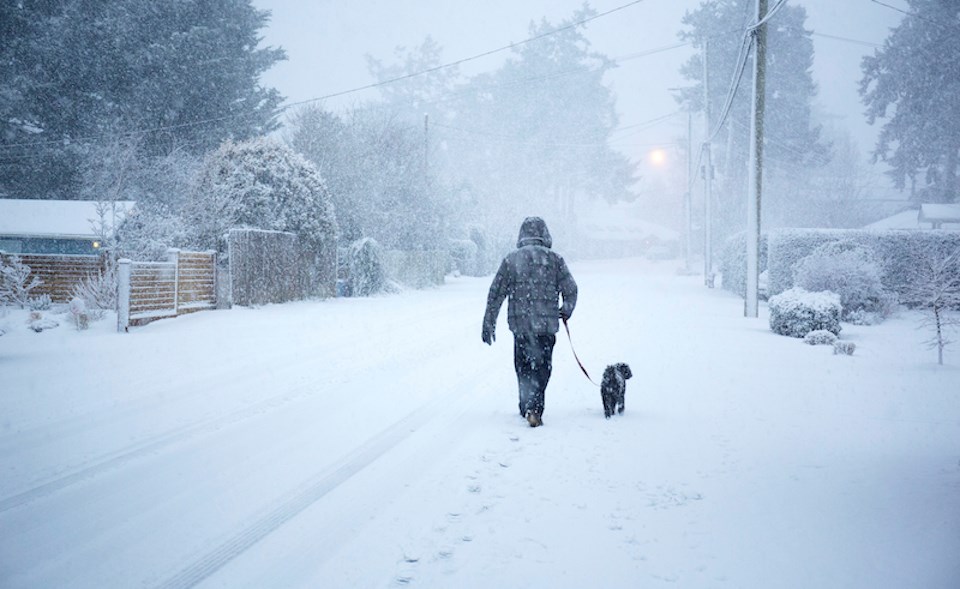Vancouverites will likely be in for a bit of this shock outdoors this weekend.
Following weeks of unseasonable heat and dry conditions, the Vancouver weather forecast includes some precipitation — and it isn't expected to ease up any time soon.
Environment Canada meteorologist Alyssa Charbonneau told Vancouver Is Awesome that locals will feel like they've thrown "right from summer into the middle fall." In fact, some of B.C.'s highways are expected to see some snowfall over the weekend.
"Now is the time to sort of look around and clear your drains and gutters. If you're travelling, take a look at the forecast over those highways because it might be a big surprise," she noted.
While daytime highs in the Lower Mainland climbed up to 30 C in some places recently, next week's average daily highs aren't expected to rise beyond 11 C. And the cooler, wetter pattern isn't expected to subside.
Looking ahead to the winter season, the long-term forecast isn't clear. While there is a seasonal forecast for the next three months that includes October, November, and December, the first half of October's unseasonably hot weather has skewed the average.
Will La Niña have an impact on the winter Metro Vancouver weather forecast?
La Niña, "the girl" in Spanish, names the "appearance of cooler than normal waters" in the equatorial Pacific Ocean, according to the Canadian government; it is the opposite of an El Niño weather event.
In a recent update, the National Oceanic and Atmospheric Administration (NOAA) called for a 75 per cent chance that La Niña will be present this winter and won't change to a "neutral" weather pattern until about February.
"Call it what you like—triple-dip, three-peat, three-bean salad—we are facing the third La Niña winter in a row," states the department.
Typically, La Niña's impact on southern B.C. doesn't start to show until the late fall or early winter. But it does tend to produce cooler than normal conditions and snowier conditions over the mountains.
"But there's a great deal of variability in how each one of those seasons plays out. So while that's one factor that can kind of influence our late fall and winter weather, there are more factors that can come into play and how they interact with one another," she explained.
The cumulative effect of three La Niña years may not have a more dramatic impact locally, as even a single year may not produce extreme weather. The past couple of winters have been influenced by La Niña in B.C., however, each of them saw some variability, Charbonneau said.
Environment Canada will release its official winter forecast on Dec. 1.



